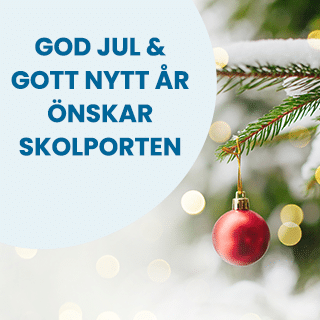Vad är religionslärarkunskap? En diskursanalys av trepartssamtal i lärarutbildningen
David Carlsson har undersökt lärares kunskap i relation till skolämnet religionskunskap och till religionslärarutbildningen.
David Carlsson
Christina Osbeck, Göteborgs universitet Professor Karin Sporre, Umeå universitet Jari Ristiniemi, Högskolan i Gävle
Professor Jon Magne Vestøl, Universitetet i Oslo
Göteborgs universitet
2017-01-13
Vad är religionslärarkunskap? En diskursanalys av trepartssamtal i lärarutbildningen
What is RE teacher knowledge? A discourse analysis of supervision trialogues in teacher education
Institutionen för didaktik och pedagogisk profession
What is RE teacher knowledge? A discourse analysis of supervision trialogues in teacher education
From an overall perspective, the aim of this thesis is to investigate teachers’ knowledge in relation to Swedish teacher education and to the school subject religious education (RE), by exploring constructions of essential knowledge for an RE teacher. Two research questions are in focus: What RE teacher knowledge is discursively constructed in teacher education supervision trialogue and in interviews with student teachers, teacher educators from school and teacher educators from university? How are those discourses constructed in supervision trialogue between student teachers, teacher educators from school and teacher educators from university? The results are based on empirical material consisting of six observations of teacher education supervision trialogues (three-way conferences) in RE and interviews with RE student teachers, RE teacher educators from upper secondary school and RE teacher educators from university, both before and after each trialogue. This empirical material is worked through and analysed using discourse analysis that mainly draws on the perspectives of Norman Fairclough. The findings give rise to an order of discourse regarding essential RE teacher knowledge. Three discourses are constructed. The dominant discourse is called “Knowing one’s subject” and refers to an RE teacher’s capacity to master the content, problematise it and both know and teach the content in an up-to-date manner. The second discourse is entitled “Knowing and meeting the pupils”. Within this discourse, it is important for a teacher in RE to be familiar with, and use, the pupils’ different pre-understandings and to communicate with the pupils in the RE classroom. The third discourse is called “Knowing oneself”. This discourse highlights the importance of being objective, reflective and being a leader. Moreover, the analysis shows that the discourses are primarily constructed as complementary in relation to one another. There seems to be a common agreement among students and teacher educators about the fact that RE teachers need to know the subject, know the pupils and know themselves. However, discursive conflicts can arise when discourses are initiated in an antagonistic manner. These RE conflicts imply neither consensus nor hegemony. Antagonistic discourses reflect aspects of dominance mainly in relation to discourses, i.e. RE teacher knowledge, but also in relation to positions.
Relaterade länkar

Svenska för högstadiet och gymnasiet
 Åk 7–Vux
Åk 7–Vux Perspektiv på samernas historia
 Åk 7–Vux
Åk 7–Vux 
